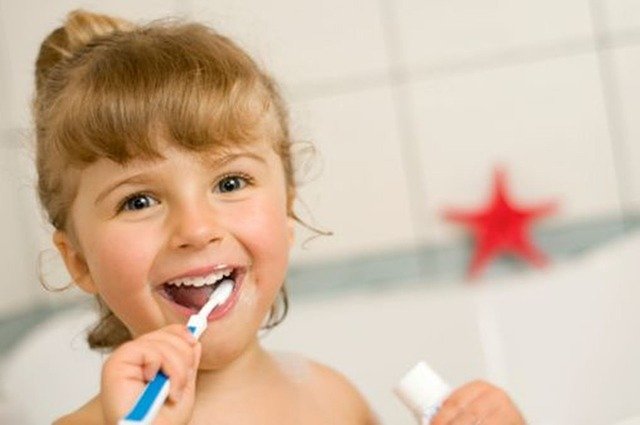Sometimes taken lightly, oral health is essential to overall health and its neglect has consequences for the entire body. The Canadian Dental Association defines oral health as a condition of the tissues and structures associated with a person’s oral system that contributes to their physical, mental and social well-being and improves their quality of life. It enables you to express yourself, eat and socialize without pain, discomfort or embarrassment. Oral health is characterized by the fact that it is not the absence of pain, disease or disorder affecting the teeth, gums or any other part of the mouth.
THE BENEFITS OF GOOD ORAL HEALTH
According to the experts at Los Algodones Dental Clinic, maintaining good oral health helps you feel good about yourself, feel confident and in good shape both physically and mentally. In terms of nutrition, healthy teeth and tissues make it easier to chew food and therefore improve digestion.
Likewise, the absence of oral diseases or pathologies avoids having to eliminate certain foods from the daily diet.
A healthy mouth also allows you to smile without embarrassment and not to fear close situations. It gives confidence, while at the same time increasing self-esteem. Therefore, a healthy smile helps develop interpersonal skills, thus increasing the chances of social success.
In addition, observing good oral hygiene practices on a daily basis helps prevent many different diseases and conditions that may require costly, more complex and sometimes invasive treatments.
HOW TO DO IT?
DAILY HYGIENE PRACTICES
To maintain the health of your mouth, it is important to ensure regular maintenance and cleaning of your mouth by brushing and flossing. Dentists recommend brushing your teeth two to three times a day and flossing once a day. The latter is essential, as the toothbrush can only reach 65% of the surface of the teeth. Therefore, flossing is essential to clean the remaining surfaces, i.e. the space between the teeth and the space near the tooth and gum.
Tooth brushing should be performed 20 to 30 minutes after a meal.
This involves making small rotating movements, holding the brush at a 45-degree angle to the teeth, up and down. Use a soft-bristled brush and always proceed gently so as not to irritate the gums. Overly aggressive scrubbing of these can eventually cause gingival recession (loosening) or progressive loss of gum tissue, sometimes requiring gum grafting. Effective brushing should last 2 to 3 minutes and cover all surfaces of the teeth: the chewing surface (top), the lingual surface (on the tongue side) and the buccal surface (on the cheek side).
In addition, contrary to common practice, flossing before brushing is recommended. This method would be more effective in preventing tooth decay and various gum diseases.
Finally, do not forget to brush the inside of the cheeks and the top of the tongue, which is a major focus of bacterial proliferation.
This simple routine will allow you to remove dental plaque (also called biofilm) that accumulates daily on the teeth and gums and, if not removed, leads to the formation of tartar, which increases the risk of developing certain diseases, more serious problems.
A HEALTHY AND BALANCED DIET.
Diet plays an important role in maintaining oral health. Some foods help strengthen teeth and the delicate tissues of the mouth, while others compromise their condition.
For your snacks, choose foods low in sugars. Nuts, vegetables and non-acidic fruits are good choices. Dentists also agree that eating a piece of cheese after meals is beneficial because it helps neutralize the acidity generated by the food consumed.
In addition, be sure to reduce your intake of sugary foods and beverages, such as carbonated beverages and high-carbohydrate fruit juices. Finally, avoid all tobacco products, which increase the risk of serious diseases, including oral cavity cancer.
ROUTINE VISITS TO YOUR DENTIST
Los Algodones dentists recommend seeing your dentist for a dental cleaning (also called a prophylaxis) and a complete examination twice a year. However, this frequency can be increased according to your dentist’s recommendations based on your oral health status. These routine visits to the dental clinic will check the general condition of your mouth, including teeth, occlusion (the way you bite), soft tissues (gums, lips, tongue, cheeks and palate), in order to identify potential problems and develop a treatment plan, if necessary.
RISKS ASSOCIATED WITH POOR DENTAL HYGIENE
When dental plaque (or biofilm), made up of food debris and bacteria, is not removed frequently with a toothbrush and floss, it calcifies and turns into tartar, which cannot be removed by a dentist alone. The accumulation of tartar layers on the teeth and gums creates an environment conducive to the development of many ailments and problems, the most benign, but no less annoying, being halitosis (bad breath). However, other conditions, potentially caused by poor dental hygiene, require prompt treatment to prevent the situation from worsening. This is the case, among others, of caries, gingivitis (inflammation of the gums),
In more advanced cases in which there has been significant bone loss, tooth mobility can also be observed, which can lead to tooth loss.
Finally, you should know that a poorly functioning mouth has a significant impact on the health of the rest of the body. Consult your dentist if you have any questions or concerns about the state of your oral health.
